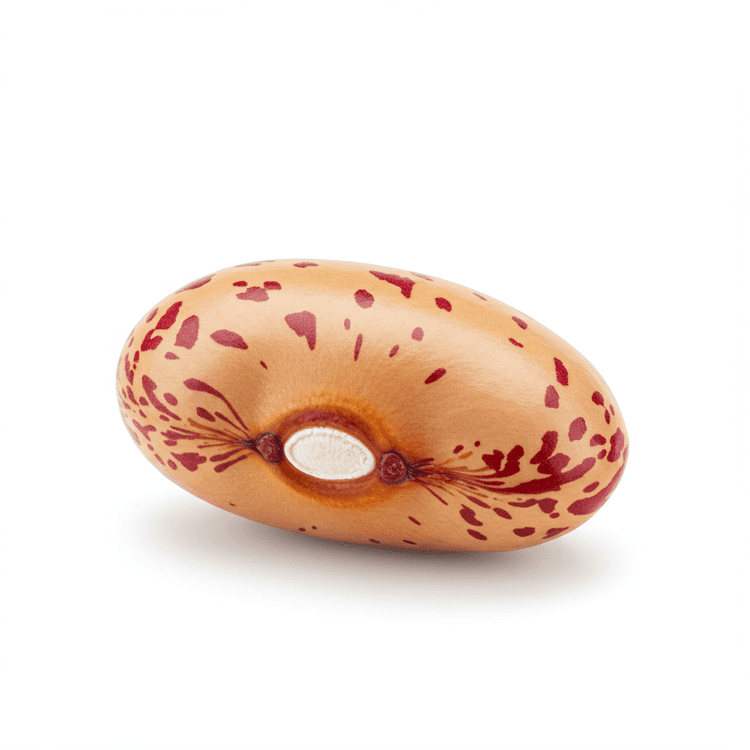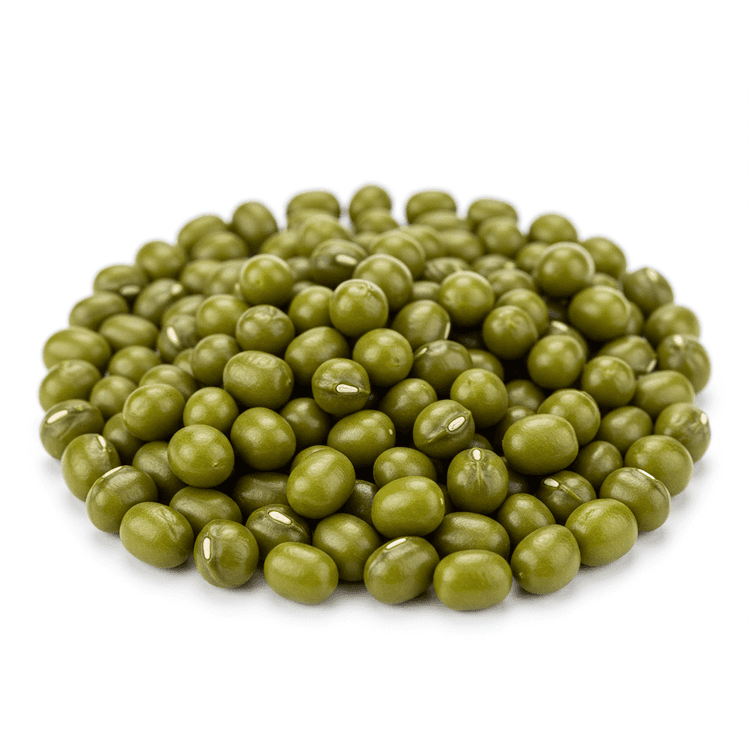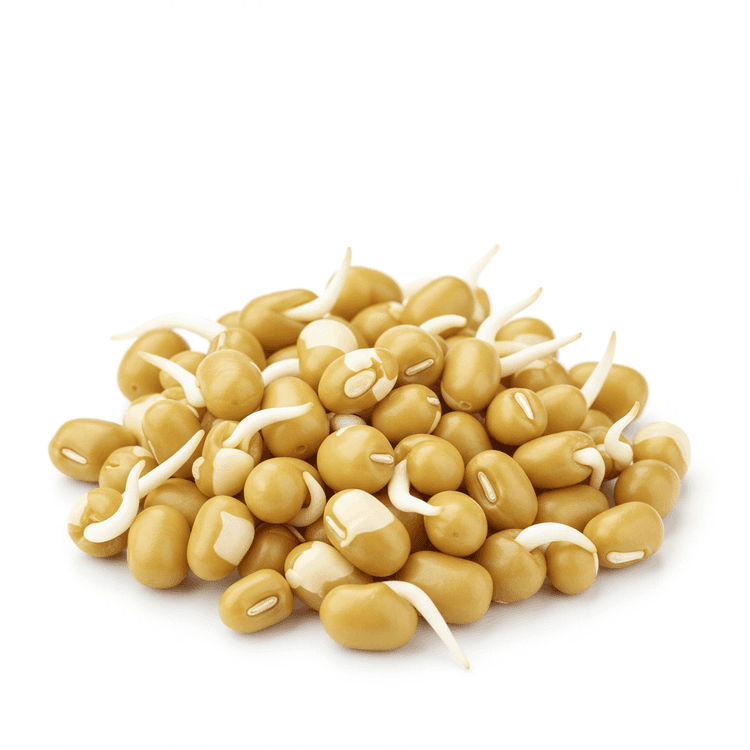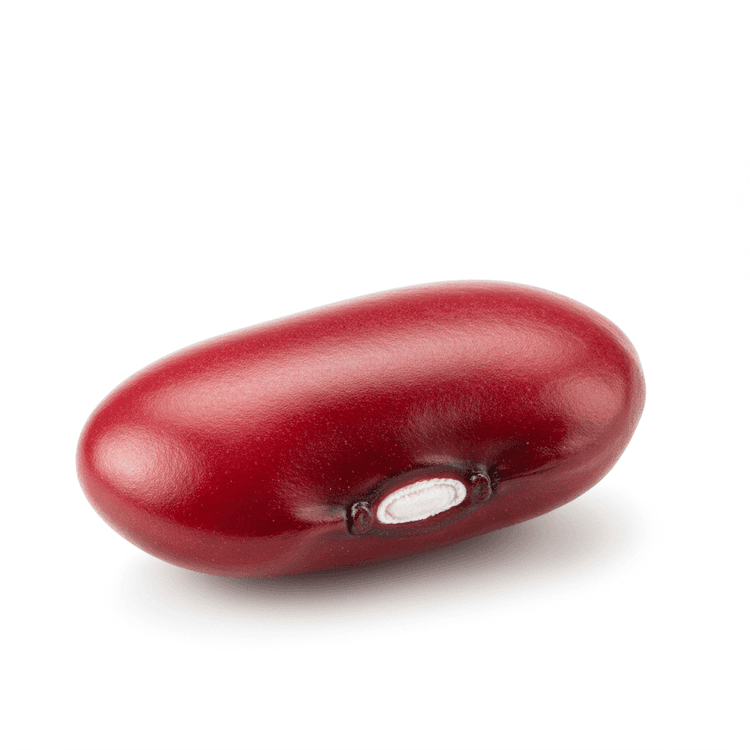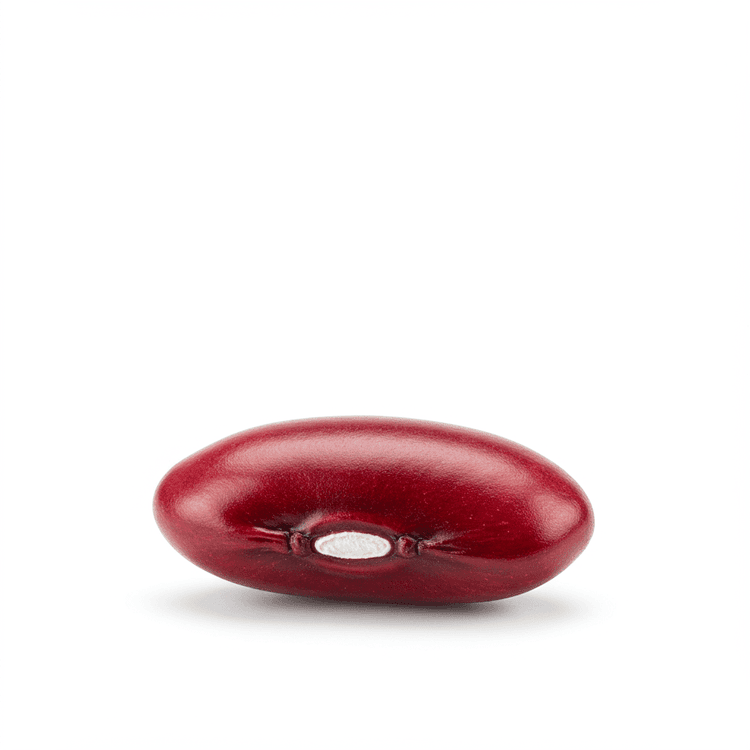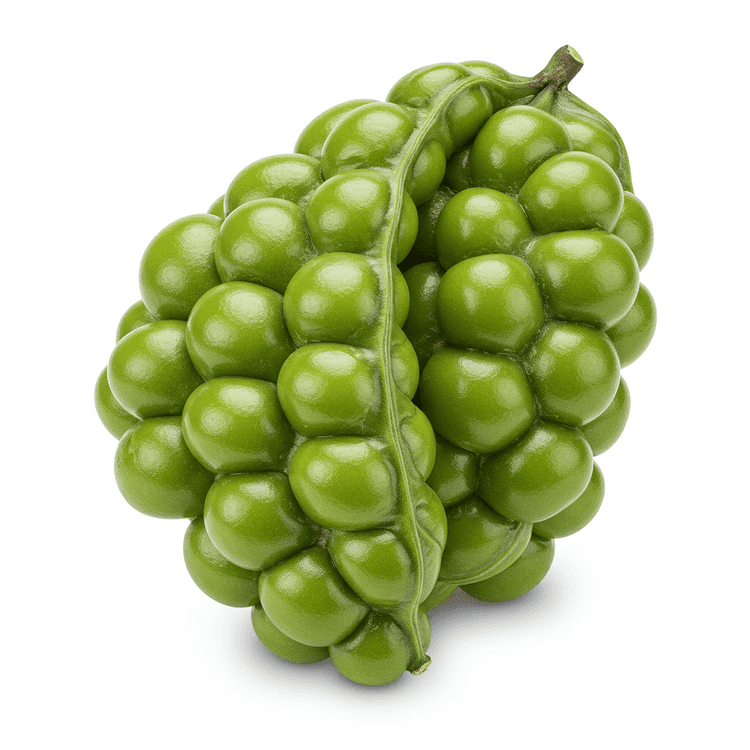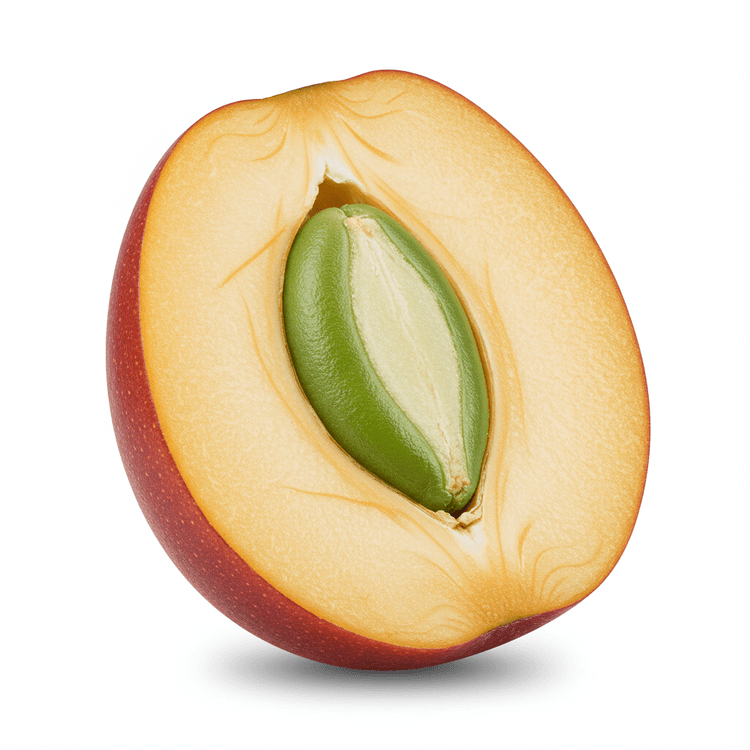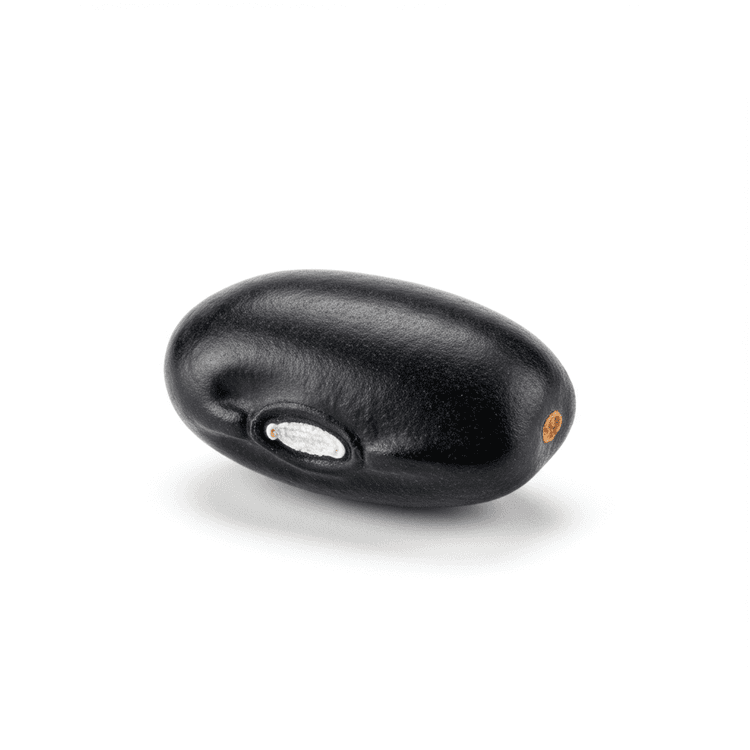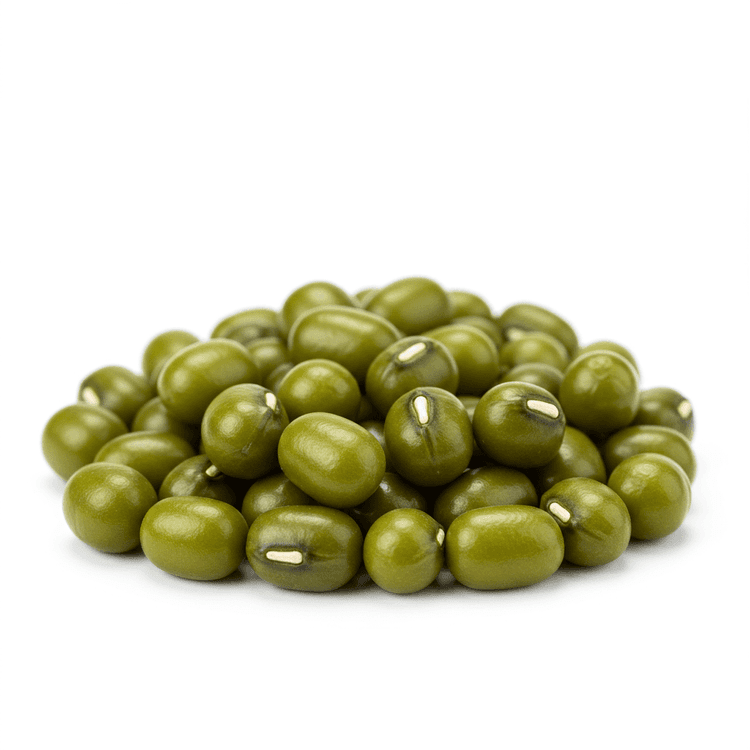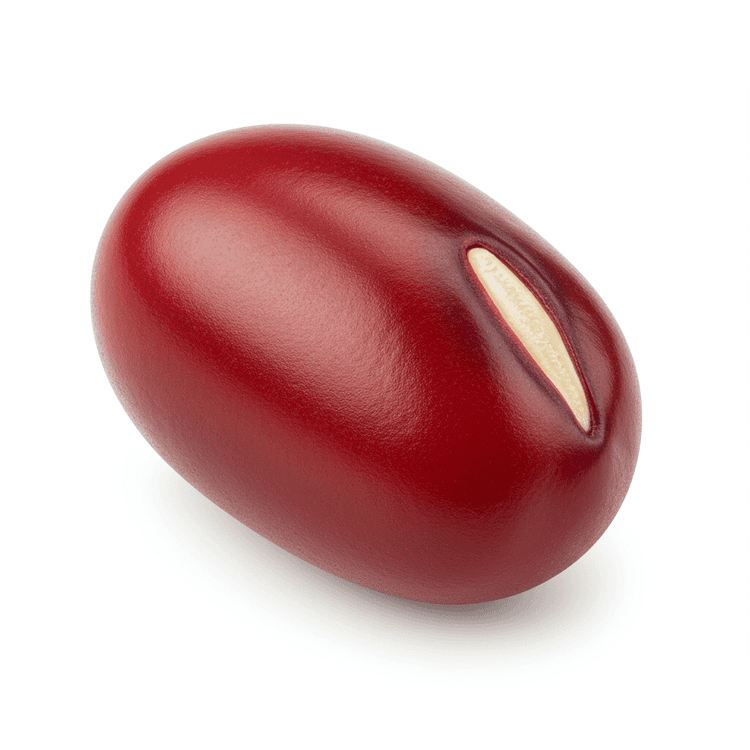
Adzuki Bean
Adzuki beans, also known as aduki or azuki beans, are small, reddish-brown legumes with a subtly sweet and nutty flavor. These beans have a smooth, firm texture when cooked and are often used in both sweet and savory dishes. Their vibrant color and slightly earthy taste make them a versatile ingredient for various culinary applications. They're a popular ingredient in vegan and vegetarian dishes, and are a great source of plant-based protein and fiber. Where to buy adzuki beans? Look for dried or canned adzuki beans in the international aisle of most grocery stores.
Common Uses
- Making sweet red bean paste (anko): Adzuki beans are traditionally boiled with sugar to create a smooth, sweet paste, a popular filling for Japanese sweets like mochi and dorayaki. - Using in savory soups and stews: Add cooked adzuki beans to vegetable or meat-based soups and stews for a hearty texture and subtle sweetness. - Sprouting for salads and stir-fries: Sprouted adzuki beans offer a crunchy texture and mild flavor, making them a nutritious addition to salads and stir-fries. - Incorporating into rice dishes: Mix cooked adzuki beans with rice to add a boost of protein and fiber, creating a more filling and nutritious side dish. - Baking into bread and muffins: Pureed adzuki beans can be added to bread and muffin batters to enhance moisture and add a subtle sweetness and nutty flavor. - Making adzuki bean tea: Boil adzuki beans in water to create a healthy and flavorful tea known for its potential health benefits.
Nutrition (per serving)
Nutrition (per serving)
Calories
329.0kcal (16.45%)
Protein
23.1g (46.2%)
Carbs
62.9g (22.87%)
Sugars
2.7g (5.4%)
Healthy Fat
0.7g
Unhealthy Fat
0.2g
% Daily Value based on a 2000 calorie diet
Nutrition (per serving)
Calories
329.0kcal (16.45%)
Protein
23.1g (46.2%)
Carbs
62.9g (22.87%)
Sugars
2.7g (5.4%)
Healthy Fat
0.7g
Unhealthy Fat
0.2g
% Daily Value based on a 2000 calorie diet
Health Benefits
- Rich in fiber, promoting digestive health and regularity.
- High in protein, supporting muscle building and satiety.
- Good source of iron, helping to prevent iron deficiency anemia.
- Contains antioxidants that combat free radicals and reduce inflammation.
- May help regulate blood sugar levels due to its low glycemic index.
- Supports heart health by lowering cholesterol levels.
Substitutes
Chefadora AI is here.
Experience smarter, stress-free cooking.
Storage Tips
Adzuki beans should be stored in an airtight container in a cool, dry, and dark place, like a pantry. When stored properly, dried adzuki beans can last for several years. Cooked adzuki beans should be refrigerated promptly and will keep for up to 3-5 days. You can also freeze cooked beans in an airtight container for longer storage, up to 2-3 months. Be sure to cool them completely before freezing to prevent freezer burn.
Marnirni-apinthi Building, Lot Fourteen,
North Terrace, Adelaide, South Australia, 5000
Australia
